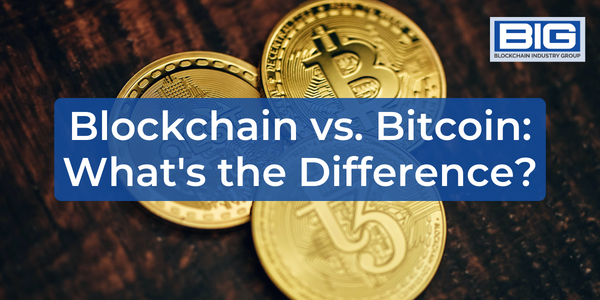
Blockchain technology and Bitcoin are often talked about in the same breath, but it’s important to understand that they are not the same thing. While Bitcoin is a cryptocurrency that relies on blockchain technology, blockchain is a much broader concept that has the potential to revolutionize a wide range of industries beyond just finance.
So, what’s the difference between blockchain and Bitcoin?
At its core, a blockchain is a decentralized, distributed ledger that allows multiple parties to record transactions and share access to a secure database. This means that rather than relying on a central authority to validate transactions, a blockchain relies on a network of computers to reach consensus on the validity of a given transaction.
Bitcoin, on the other hand, is a specific type of cryptocurrency that was the first to use blockchain technology. It allows for secure and transparent financial transactions without the need for a third party intermediary.
One key difference between blockchain and Bitcoin is that while Bitcoin is primarily used for financial transactions, blockchain has the potential to be used for much more. For example, it could be used to track and verify the authenticity of luxury goods, or to securely store and share medical records.
Top 10 Hidden Gem Blockchain Bloggers
—
Top 10 Hidden Gem Blockchain News Sites
—
Top 10 Schools with Hidden Gem Blockchain Programs
Another difference is that while Bitcoin is a specific type of cryptocurrency, there are many other cryptocurrencies that also rely on blockchain technology. For example, Ethereum is a popular blockchain platform that allows users to build and deploy decentralized applications, or “dApps.”
Overall, it’s important to understand that while Bitcoin and blockchain are often talked about in the same context, they are not the same thing. Bitcoin is a specific type of cryptocurrency that relies on blockchain technology, while blockchain is a much broader concept that has the potential to revolutionize a wide range of industries beyond just finance. As the technology continues to evolve and mature, it is likely that we will see even more innovative applications for blockchain in the coming years. With its decentralized nature, ability to facilitate direct asset transfers, and other key features, it is clear that blockchain has the potential to revolutionize the way we conduct business and exchange value. It is an exciting time for blockchain, and the future looks bright for this innovative technology.



